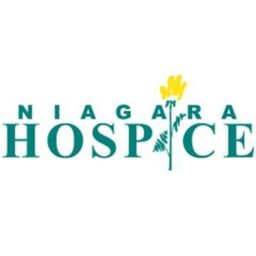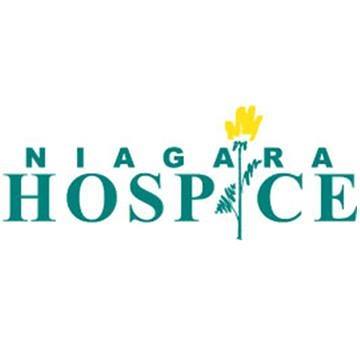A diagnosis of dementia can be difficult to hear, not only for the individual affected, but also for their loved ones and caregivers. Diseases like Alzheimer’s, Parkinson’s, Huntington’s and other related dementia conditions are irreversible and have no cure or treatment, and as dementia progresses, patients often lose their memory, ability to engage and hold a conversation or even achieve activities of daily living on their own.
The most prevalent diagnosis in older persons today is dementia and Alzheimer’s disease, according to the National Council of Certified Dementia Practitioners, and the sixth-leading cause of death in the United States, affecting more than 5.7 million people. Fortunately, Niagara Hospice understands not only the difficulties with dementia care, but also the related conditions and health concerns that can arise, and offers specialized care to help those affected and their family members and caregivers.
Defining Dementia
Dementia, speaking broadly, can apply to a number of different neurocognitive disorders. The most well known is Alzheimer’s disease, though Pick’s disease, Creutzfeldt-Jakob disease, Huntington’s disease and Parkinson’s disease are other common examples of dementia conditions. These diseases typically progress slowly over time, resulting in increasing difficulty with thinking, conversing and recalling memories that may evolve to include periods of irritability, inability to manage daily life activities such as bathing or dressing, and even loss of mobility or the ability to express one’s self.
Dementia alone can result in end-stage health conditions, but may also occur with other health concerns that can be complicated as a result of the neurocognitive condition. This may include diabetes, chronic obstructive pulmonary disease (COPD), congestive heart failure (CHF) or other conditions that may require daily medication to maintain. However, as memory and mobility are impacted by dementia, this can become difficult or impossible to maintain, leading to the need for additional care. The NCCDP says that 80 percent of patients now living in assisted living or skilled nursing facilities have some form of dementia – an indication of how prevalent and serious the condition can be in tandem with other underlying health issues.
Identifying Hospice Eligibility in People with Dementia
Every case of dementia is unique, and with the perceived level of severity often fluctuating due to occasional “moments of clarity,” coupled with the condition’s progressive nature, it is often difficult for caregivers to know when to seek end-of-life care for their loved ones. In an effort to help caregivers make these tough decisions, multiple tests have been created to determine the severity of the condition. One such test is the Flacker Mortality Index – a practical approach to identifying mortality-related factors in people requiring long-term care.
Measuring factors such as functional ability, weight loss, shortness of breath, difficulty swallowing, age and body mass index, the Flacker score has been applied as a method of determining how likely a person with dementia is to pass away within the next year.
Another reliable dementia evaluation test, the Functional Assessment Staging Test (FAST), is focused on mapping the progression of dementia, specifically for individuals with Alzheimer’s disease. This test includes both the severity and declination of observed symptoms in each patient as well as the overall prognosis at each stage. For people determined to be within six months of their end of life, hospice care is an option.
An Expanded Approach to Dementia Care for Families
Over time, dementia takes a toll on anyone involved in caring for a loved one living with the range of symptoms and behaviors that the condition presents, but the stress of being a caretaker is often the most difficult road to navigate during these challenging times.
That is why Niagara Hospice continues to invest in dementia care certifications for staff and increasing aide hours in home care for patients and families.. The dementia care program is focused on the entire family and caregiver unit to improve the quality of life for those feeling the often overwhelming effects of dementia – both the individuals suffering from it and their families.
“Too many patients who are suffering with dementia are lacking the proper care and support that they deserve to receive to maintain a good quality of life,” said Danielle Burngasser, Vice President of Hospice Clinical Operations. “Our dementia care approach aims to reduce the suffering that arises from dementia symptoms, including agitation, restlessness and confusion, and it strives to reduce the daily stress and fatigue that families and caregivers experience.”
One of the methods Niagara Hospice has employed is multi-sensory therapies that rely on sounds, sights and scents to engage and calm patients and elevate their moods, especially during meals and bedtime when stress can spike for everyone involved in daily care. This approach incorporates a variety of prompts with music, photos and videos preferred by patients y in a tailored fashion that works with each patient’s unique needs and interests, as well as their physical and mental capabilities. This model was pioneered by the Dr. Govind Bharwani at the Hospice of Dayton, and the use of these complementary therapies over time has shown improved recall in dementia patients.
Preparing for Future Dementia Care Needs
Niagara Hospice recognizes the importance of constantly staying apprised of the latest best practices and therapy techniques surrounding dementia care to improve our understanding and application of dementia care. The clinical staff pursues continuing educational opportunities to enhance our expertise in dementia care, not only for the many people in our communities across Niagara County suffering from this condition , but also for all the people who will one day receive this diagnosis and face the daily challenges with their loved ones as well.
Approximately 5.7 million Americans currently live with some form of dementia, and with life expectancy estimated to rise in coming years due to advancements in medical technology and treatment options, that number is projected to grow substantially. In fact, the American Speech-Language-Hearing Association reported on a study done for the American Academy of Neurology that projects the number of Americans ages 65 or older with dementia will reach 13.8 million by 2050.
At Niagara Hospice, we see this as an opportunity to continue creating dignified, personalized care plans for those affected, and we remain fully committed to being expert caretakers to every single person struggling with any form of dementia – today and in the future.
In addition to being on the front lines of this important work, we also know that the growing numbers of people affected by dementia will also add to the responsibilities of at-home caregivers. While providing support and caring for your loved ones during times of difficult illness can often be extremely gratifying, some caregivers experience increased stress over time that can lead to fatigue and anxiety, a state described by the American Hospice Foundation as “caregiver burnout.”
This phenomenon is totally natural, as the role of caregiver almost always comes with a level of stress that is inherently greater than that of someone going about their normal lives. We understand that sometimes caregivers just need a little break, which is why Niagara Hospice offers dementia care as part of our respite services. This program provides short-term care, of up to five days, to take on the responsibilities that families and caregivers so selflessly take on themselves. Self-care for family members or caregivers is just as important as providing care for a loved one with dementia, and with respite care, Niagara Hospice helps caregivers find time to care for themselves and maintain their quality of life.
Here for Niagara County Families Now and Always
At Niagara Hospice, our primary focus is the dignity of those under our care. Whether we are providing specialized care to an individual affected by dementia or offering personalized support to families and caregivers faced with the challenges of a loved one’s late-stage illness, we believe that everyone in Niagara County has a right to receive respect, comfort and the best possible quality of life during hospice care.

